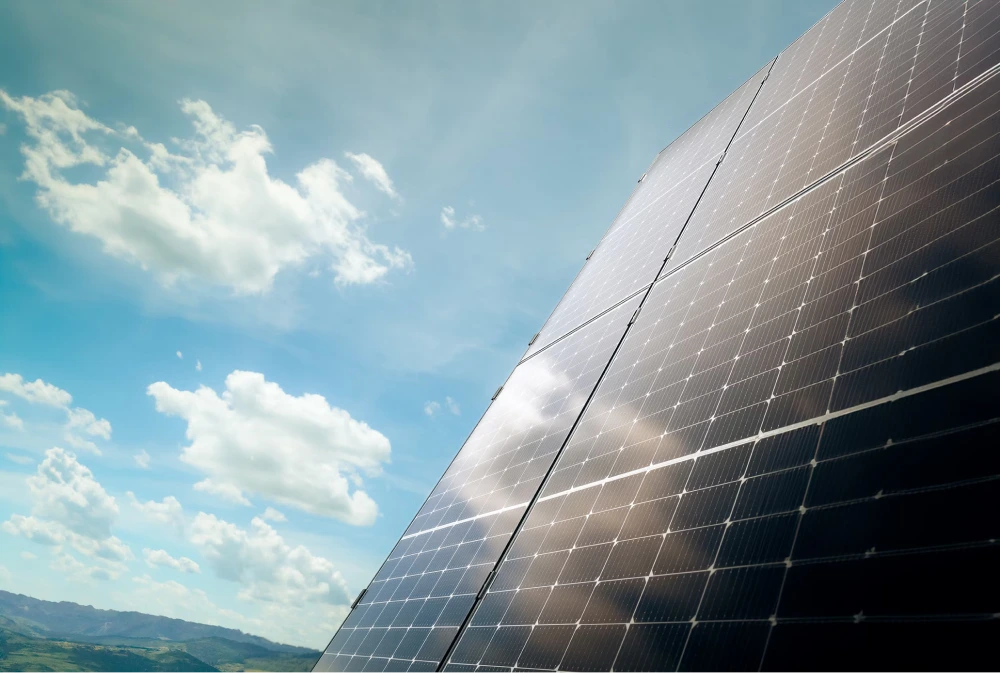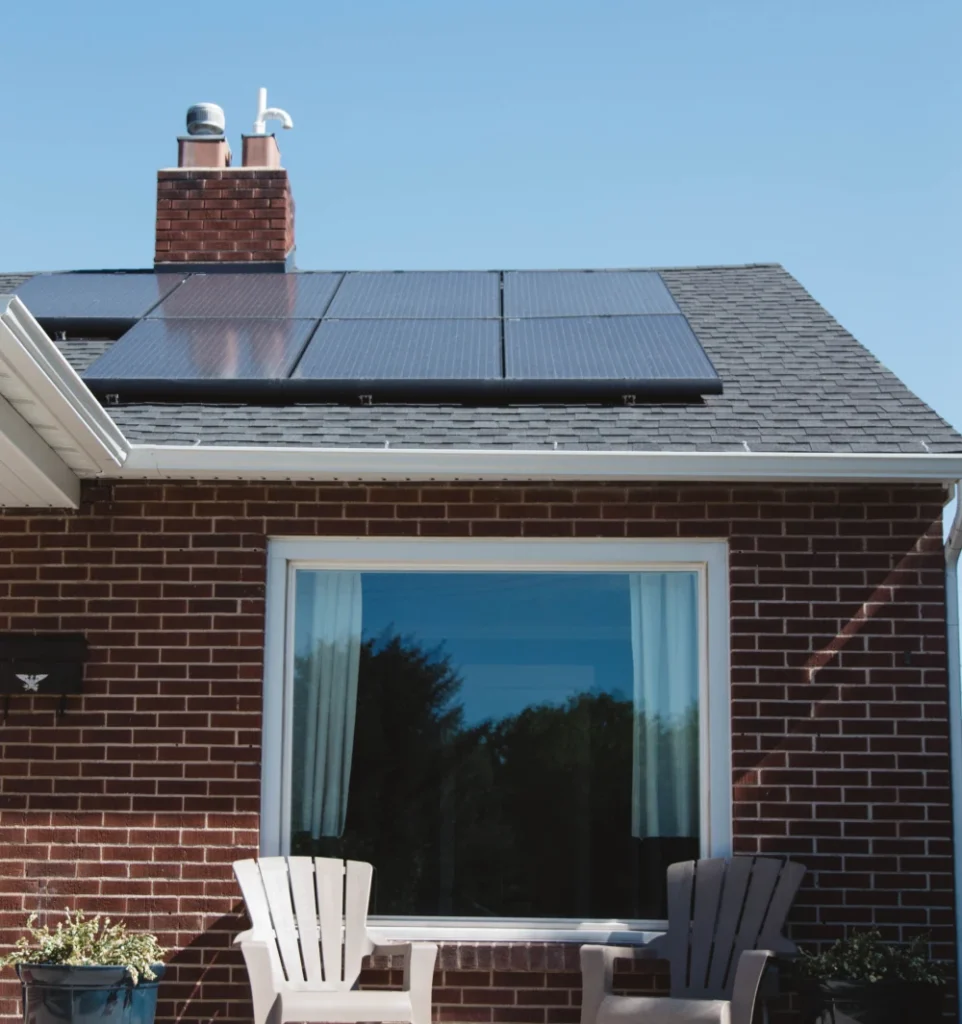
Is Solar Energy Renewable?
3 minute read • Last update September 2024

In this article
Is solar power a renewable energy source?
Yes, solar energy is considered a renewable energy source because it has an essentially unlimited fuel source and does not create harmful greenhouse gases. Solar panels harness the power of the sun, which will continue to produce an abundant and continuous supply of energy for several billion years.
What are other renewable energy sources?
A renewable energy source is a type of energy that is naturally replenished on a human timescale and can be used repeatedly without depleting its availability. These sources are often considered environmentally friendly because they produce little or no greenhouse gas emissions. Examples of renewable energy sources include:
- Solar Energy – Energy harnessed from the sun with solar panels
- Wind Energy – Energy generated by wind turbines from the movement of air
- Hydropower – Energy produced by the flow of water through hydroelectric dams, tidal power, or wave power
- Geothermal Energy – Energy derived from the heat within the Earth to spin turbines to generate power
- Biomass Energy – Energy from burning organic materials, such as plant and animal waste, to spin turbines to generate power
Renewable energy sources are contrasted with non-renewable sources, like coal, oil, and natural gas, which take millions of years to form and are finite in supply.
What is the difference between solar and non-renewable energy sources?
The main differentiators between solar and non-renewable energy sources stem from their availability, ability to naturally replenish themselves, impact on the environment, and cost efficiency.
Here’s a breakdown of the key differences:
1. Availability and replenishment
Renewable sources of energy like solar are widely available and naturally replenish themselves on a human timescale. Non-renewable sources of energy may be widely available, but do not naturally replenish themselves on a human timescale.
For example, solar will be available as long as the sun is shining. Scientists expect the sun will continue burning for the next five billion years.
Fossil fuels like coal and oil do occur naturally, but cannot be replaced in a reasonable timeframe. Scientists estimate we are nearing the end of our ability to consume fossil fuels. According to the Millennium Alliance for Humanity and the Biosphere (MAHB) from Stanford University, oil will run out by 2052, gas will run out by 2060, and coal will run out by 2090.
2. Environmental impact
Solar is considered cleaner and more environmentally friendly because solar panels produce no harmful greenhouse gases while they operate. The burning of oil, gas, and coal however leads to the emission of harmful greenhouse gases like carbon dioxide that trap heat in the atmosphere and contribute to global warming.
3. Cost and infrastructure
Solar power, and other renewable energy sources, often have high upfront costs to manufacture and install, but low ongoing costs because the fuel source is free. We do not have to pay for sunlight.
Alternatively, non-renewable energy sources can be cheaper to establish because of existing infrastructure, but operational costs can fluctuate widely due to the market prices of fossil fuels like oil, coal, and gas.
Does solar power harm the environment?
Solar energy is considered one of the cleanest and most environmentally friendly sources of power, but there are still some impacts to the environment associated with the manufacturing of solar panels, installation of solar farms, and disposal of decommissioned materials. However, these impacts are significantly less harmful compared to traditional fossil fuels.
Here are the main environmental concerns related to solar energy:
1. Manufacturing and materials
The process of manufacturing solar panels requires energy production, which may come from fossil fuels, and involves the use of materials such as silicon, glass, and metals that require intensive mining operations to collect.
The generation of power and the mining of these materials to produce solar panels can have detrimental effect on the environment such as greenhouse gas production, air pollution, and water usage.
It is generally thought that the renewable power generated by solar panels, once they are operational, outweighs the negative impacts from the initial manufacturing and construction processes.
2. Land use
Utility-scale solar farms require a significant amount of land, and this can be disruptive to local habitats and wildlife. On the other hand, solar panels can also be integrated into urban areas on rooftops or over parking lots, reducing the need to develop natural land.
3. Water usage
The most common type of solar panels, photovoltaic panels, do not require much water during operation. This makes them much less intensive than traditional fossil fuel power plants.
However, concentrated solar power systems can require more water than photovoltaic.
4. Energy storage
Solar power systems often generate more power than can be used at any given moment and do not generate power at night. Battery storage can be used to store excess power, which can then be utilized overnight. The downside? The production of batteries relies on the mining of materials like lithium and cobalt, which can be harmful to the environment.
5. End-of-life disposal
Unfortunately, solar panels do not last forever. The typical solar panel has a lifespan of about 25-30 years and they must be decommissioned. If panels are not disposed of properly, the hazardous materials used to create them can cause damage to the environment.
However, solar panel recycling technology is improving, helping to mitigate these concerns.
Written by Graham Lumley
Graham Lumley, Digital Marketing Manager at BKV Energy, leads digital and traditional marketing strategies, focusing on educating Texans about the state's deregulated energy market. With over 8 years of marketing experience, he creates content to help consumers understand and save on their energy bills, bringing a fresh and dynamic approach to the industry.
Related articles

What is Net Metering?
4 minute readThis article is for educational purposes only. BKV Energy does not offer solar buyback plans or plans specific to homeowners or renters with solar panels. Net metering is a system that allows residential electricity customers who generate their own electricity (usually through solar panels) to send the surplus electricity they…
Get $50 off your electric bill!
Use code BKVEJOINUS50
Enter your zip code to shop BKV Energy's affordable, fixed-rate Texas electricity plans. Use the promo code for $50 off your electric bill.
